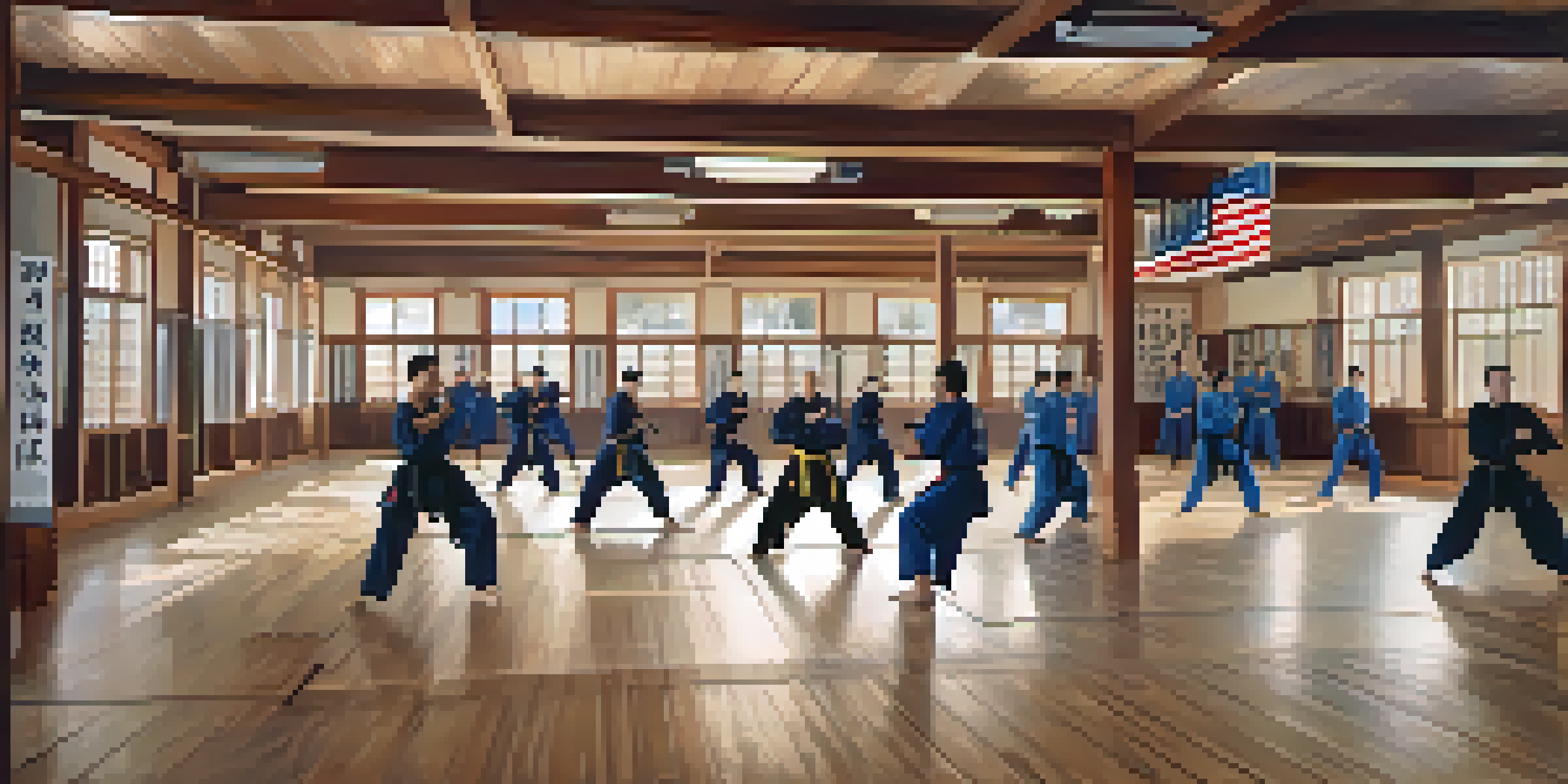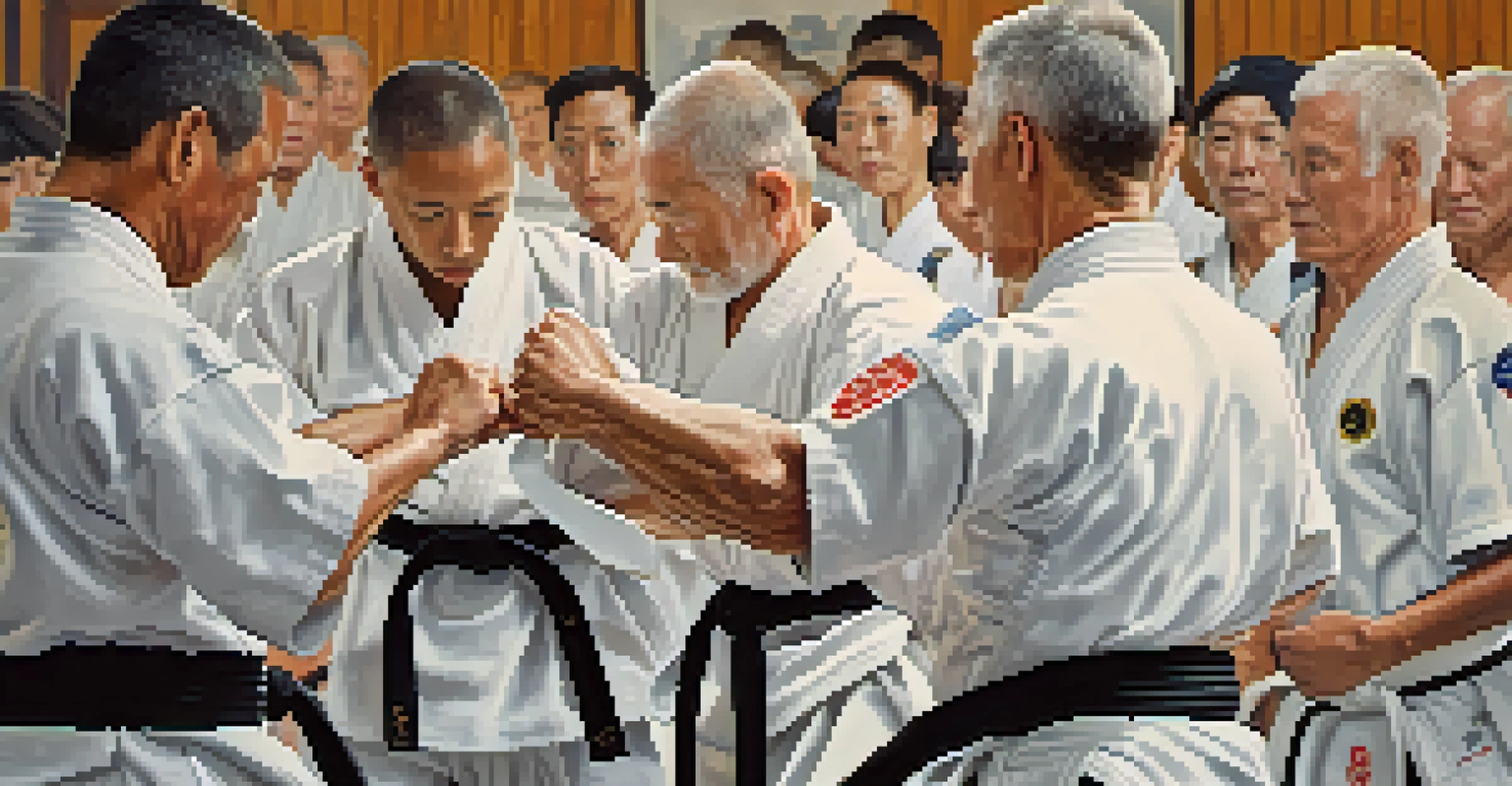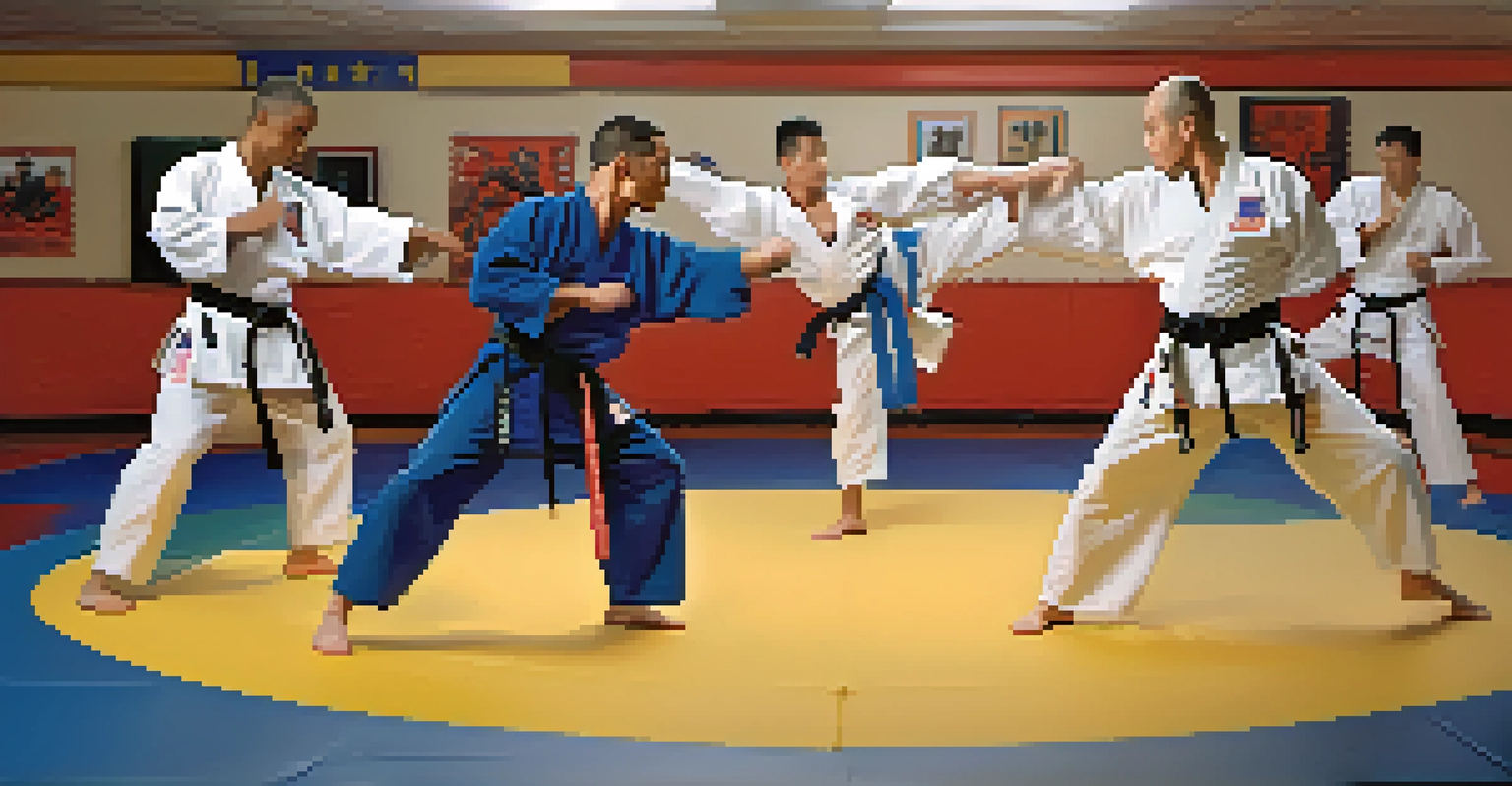Resilience Training through Martial Arts for Veterans

Understanding Resilience and Its Importance for Veterans
Resilience is the ability to bounce back from challenges and adversity. For veterans, who often face unique stressors after returning from service, building this skill is crucial. It helps them navigate the transition to civilian life and cope with emotional and psychological hurdles.
Strength does not come from physical capacity. It comes from an indomitable will.
The journey of resilience isn't just about enduring tough times; it's about thriving despite them. This mindset enables veterans to approach life's challenges with confidence and determination. By fostering resilience, veterans can reclaim a sense of control over their lives.
Incorporating resilience training into their routine can significantly affect veterans' well-being. Whether through therapy, support groups, or physical activities like martial arts, the goal remains the same: to develop a stronger, more adaptive mindset.
How Martial Arts Develops Mental and Physical Resilience
Martial arts combines physical training with mental discipline, making it an effective tool for resilience building. Techniques learned on the mat, such as focus and perseverance, translate into everyday life, helping veterans face their challenges head-on.

Practicing martial arts requires discipline and commitment, qualities that are essential for resilience. As veterans train, they learn to set goals, overcome obstacles, and celebrate small victories, reinforcing their ability to handle setbacks.
Resilience is Key for Veterans
Building resilience helps veterans navigate the transition to civilian life and cope with emotional challenges.
Moreover, martial arts fosters a sense of community and belonging, which is vital for veterans. Training alongside others creates bonds that provide support and encouragement, reminding them that they are not alone in their struggles.
Connecting Mind and Body through Martial Arts Training
Martial arts emphasizes the connection between mind and body, which is crucial for developing resilience. Techniques often involve mindfulness, helping veterans stay present and focused, reducing anxiety and stress. This awareness can lead to better emotional regulation.
It’s not whether you get knocked down, it’s whether you get up.
In a typical class, veterans learn to respond to challenges with calmness instead of panic. This shift in mindset can be transformative, as it teaches them to approach problems with a clear head and a strong heart. It's like training a muscle; the more you practice, the stronger you become.
Additionally, martial arts provides a physical outlet for stress and frustration. Engaging in rigorous training helps release pent-up energy and emotions, paving the way for a healthier mental state and reinforcing the resilience developed on the mat.
Building Community and Support Networks in Martial Arts
One of the most significant benefits of martial arts for veterans is the sense of community it fosters. Training alongside fellow veterans creates a unique bond, as they share similar experiences and challenges. This camaraderie can be incredibly healing.
Support networks built within martial arts classes often extend beyond the dojo. Veterans find friends and mentors who understand their struggles, providing emotional support and encouragement. This environment can be a safe space to share feelings and experiences.
Martial Arts Enhances Resilience
Martial arts training develops both mental discipline and physical strength, fostering resilience in veterans.
Having a reliable support network is essential for resilience. The friendships formed in martial arts can serve as a lifeline during tough times, reminding veterans that they have people who care and are willing to help them through their journey.
The Role of Discipline in Martial Arts Training
Discipline is at the core of martial arts training, and it's a key component in building resilience. Veterans learn that consistency and dedication lead to progress, both in their physical skills and personal growth. This valuable lesson can be applied to all areas of life.
With each training session, veterans cultivate a sense of responsibility towards themselves and their goals. This sense of discipline can help them rebuild their daily routines post-service, providing structure and purpose. It's a reminder that small, consistent efforts can lead to significant change.
Moreover, the discipline learned in martial arts can help veterans manage their time and priorities more effectively. This newfound ability to focus on what truly matters contributes to their overall resilience, empowering them to tackle life’s challenges head-on.
Setting Goals and Celebrating Achievements in Martial Arts
Goal setting is an integral part of martial arts training, allowing veterans to measure their progress and achievements. Whether it's mastering a new technique or earning a belt, having tangible milestones provides a sense of accomplishment. This can be incredibly motivating.
Celebrating achievements, no matter how small, reinforces a positive mindset. Veterans learn to recognize their growth and resilience, which can improve their self-esteem and confidence. This positive reinforcement encourages them to keep pushing forward.
Community Supports Veteran Recovery
The camaraderie found in martial arts creates a supportive network that is essential for veterans' healing and resilience.
Additionally, the act of setting goals helps veterans regain a sense of control over their lives. It teaches them that they can actively shape their futures, making resilience not just a concept but a practical skill they can apply in all aspects of their lives.
Success Stories: Veterans Thriving through Martial Arts
Many veterans have found success and healing through martial arts, with inspiring stories highlighting their journeys. For example, veterans have shared how training helped them manage PTSD symptoms, providing a constructive outlet for their emotions. These testimonials emphasize the transformative power of martial arts.
One veteran described how martial arts training provided a sense of purpose and direction after struggling with reintegration into civilian life. The discipline and community he found in training allowed him to rebuild his confidence and focus on his future.

These success stories remind us that resilience is not just about enduring hardships but thriving despite them. By embracing martial arts, veterans are not only improving their physical health but also reclaiming their lives, one training session at a time.